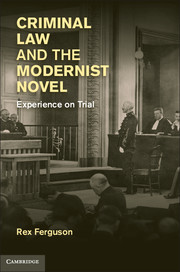Earlier this summer the Scottish Government published a draft
Criminal Justice Bill. Much of the content of this Bill had been trailed in advance. Broadly speaking the Bill is seeking to implement the findings of the
Carloway Review, which in turn was a response to the decision in the case of
Cadder which held that the Scottish practice of allowing the police to detain and question suspects for a period of up to 6 hours without access to legal advice or assistance (itself created by an earlier
Criminal Justice (S.) Act in 1980) was inconsistent with the European Convention of Human Rights.
 |
| Lord Carloway |
Much of the Bill seems entirely sensible and broadly consistent with the recommendations of the Carloway Review and largely positive responses to the review: it accordingly reforms the law relating to powers of arrest, sets the period for which a person may be held in custody following arrest, and sets out the right of access to legal advice. The more controversial part of Bill relates to the proposed abolition of corroboration (ss.57-61).
For those not familiar with Scots law, the rule is basically that the proof of any essential fact in a criminal trial needs to be supported by two independent sources of evidence. The origins of this rule can be traced back to medieval canon law, as a response to the abolition of trial by ordeal in the thirteenth century, and it was essentially an attempt to quantify the amount of evidence required for a conviction. Most modern systems of criminal law have long since departed from any requirement of corroboration, preferring instead to rely on understanding of the weight and reliability of evidence (more or less the idea that a case should not necessarily fail where there is one strong piece of evidence from a reliable source but no second piece of corroborating evidence). Scots law, by contrast, has not only retained the rule, but for long time also trumpeted it as an indication of the high level of protection given to an accused person under Scots law.
Now irrespective of the pros and cons of the debate about corroboration, it seems clear that if you are going to abolish a rule that is said to provide protection to an accused (and this in response to a decision which directly challenged Scots law over the strength of protections given to an accused in respect of legal advice on arrest), you need to put a robust new system of protection in place. So what does the Bill offer?
The answer is hidden away in s.70:
A jury of 15 members may return a verdict of guilty only if at least 10 of them are in favour of that verdict.
This is a change from current law, where a person can be convicted on a simple 8:7 majority (which, incidentally, has never seemed like much of a protection to me). But how strong a protection is this? One possible measure is to compare this to the majorities required in other jurisdiction that use juries (and here I am pleased to plug the work of my colleagues, James Chalmers and Fiona Leverick, who have looked into this). And the shocking finding here is that most lay jury systems worldwide typically require either unanimity or near-unanimity in order for an accused person to be convicted. They conclude:
the effect of the Criminal Justice (Scotland) Bill as it now stands would be to reduce the level of protection against wrongful conviction offered in Scotland below that offered in any other comparable jurisdiction.
 |
Scottish Justice Secretary Kenny MacAskill:
Corroboration should be abolished... |
It is obviously to be hoped that the Scottish Government will take this criticism seriously. It is not a knee jerk reaction to proposals for the abolition to abolish corroboration, but is based on research and extensive comparative knowledge of criminal justice systems. But the signs are perhaps not great. Similar research based criticisms were made of Lord Carloway's argument about corroboration in his report, but these were never addressed. And now the Government seems to want to press ahead with the abolition of corroboration notwithstanding the disquiet expressed by many. The legislative process is committed to public consultation and review, but if the responses to this review are not taken into account we would be entitled to ask whether this commitment is purely cosmetic.
[Our full response to the Bill, and a link to the published findings of Chalmers and Leverick on jury majorities can be found
here]





